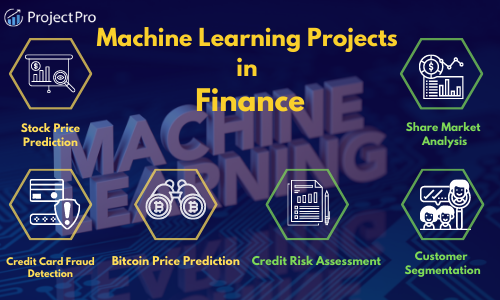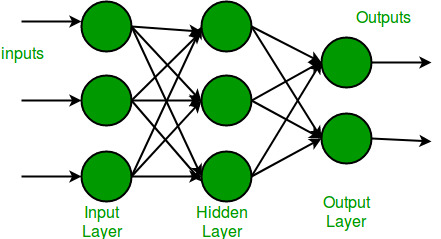
Demis hassabis is a British scientist and artificial intelligence researcher. He is also a game designer and entrepreneur. He won the Pentamind board gaming championship five times. He has been to many countries in his career to promote AI. He was also the winner of the World Championship of Computer Chess' prestigious chess tournament. He is the current leading researcher in cognitive neuroscience, a field he helped to develop.
Chess prodigy
Demis Hassabis was a child chess champion who turned his talents to science. DeepMind is an artificial intelligence company. Computer scientist Demis Hassabis, a chess prodigy, is also applying the same chess values in science and technology. His work raises interesting questions about artificial intelligence, as well as the future of chess.
As a teenager, Hassabis achieved the rank of master in chess. He was also the second-best player under 14 years old. At fourteen, he had completed his GCSEs. He was two years ahead than his peers. He continued on to A-level mathematics and physics studies, winning the UK under-11 champions title at nine. He was eight when the prodigy entered the world of computer games, purchasing a ZX Spectrum computer.

Cognitive neuroscience researcher
Cognitive neuroscience is a field of research in which the imagination is a key component. As a result, brain damage to the hippocampus is thought to be a major cause of amnesia. His research on autobiographical memories has allowed us to understand the link between episodic memory and imagination. His research is widely cited in Science and Nature, as well as in many scientific journals.
Demis Hassabis, an ex-child prodigy, studied undergrad at Cambridge University. Then, he started Elixir Studios a pioneering games studio. His company has been a pioneer in creating award-winning games, including those for Vivendi Universal as well as global publishers like Electronic Arts or Disney. To earn his PhD from University College London in cognitive neuroscience, he returned to academia. The Massachusetts Institute of Technology then offered him a postdoc. In 2007, Science named Hassabis' research on memory and imagination one of the ten most important breakthroughs in science.
Video game designer
Hassabis began in the computer sector as a programmer. Later, he entered the business world and won a job opportunity in Amiga Power magazine. He co-designed a video game called 'Theme Park', which sold over ten million units and won the Golden Joystick Award. Since then, he has founded Elixir Studios and worked with many publishers including Microsoft and VivendiUniversal.
Hassabis was 13 when he became a champion player in chess and began playing games with adults. Bullfrog Productions was his employer, and he created the bestselling games Syndicate & Theme Park. Hassabis studied under Peter Molyneux and helped to develop Theme Park. This was the first management simulation video game.

Entrepreneur
British entrepreneur Demis Hassabis, an artificial intelligence researcher and British entrepreneur, is well-known for his work in games and video. He is also an artificial intelligence researcher and five-time Pentamind game champion. Hassabis currently works on Mindstorms, a game that challenges players to solve puzzles with artificial intelligence. Demis is a force to reckon with, whether it's developing artificial intelligence through games or creating new ways for games to be more fun.
DeepMind was established by Demis Hassabis back in 2010. This company later was acquired by Google. In October 2015, DeepMind's AlphaGo computer beat the European Go champion Fan Hui with a five-to-zero score. The Shogi world championship was won by the DeepMind AlphaGo computer in December 2017. This computer program was a combination Monte-Carlo Tree Search, Deep learning.
FAQ
Is Alexa an AI?
The answer is yes. But not quite yet.
Amazon has developed Alexa, a cloud-based voice system. It allows users to communicate with their devices via voice.
First, the Echo smart speaker released Alexa technology. Other companies have since used similar technologies to create their own versions.
Some examples include Google Home (Apple's Siri), and Microsoft's Cortana.
Who invented AI and why?
Alan Turing
Turing was first born in 1912. His father was clergyman and his mom was a nurse. He was an excellent student at maths, but he fell apart after being rejected from Cambridge University. He learned chess after being rejected by Cambridge University. He won numerous tournaments. He worked as a codebreaker in Britain's Bletchley Park, where he cracked German codes.
1954 was his death.
John McCarthy
McCarthy was born on January 28, 1928. Before joining MIT, he studied mathematics at Princeton University. He created the LISP programming system. He had already created the foundations for modern AI by 1957.
He died in 2011.
What does the future look like for AI?
Artificial intelligence (AI), which is the future of artificial intelligence, does not rely on building machines smarter than humans. It focuses instead on creating systems that learn and improve from experience.
This means that machines need to learn how to learn.
This would allow for the development of algorithms that can teach one another by example.
We should also consider the possibility of designing our own learning algorithms.
It is important to ensure that they are flexible enough to adapt to all situations.
How does AI impact the workplace?
It will revolutionize the way we work. We will be able to automate routine jobs and allow employees the freedom to focus on higher value activities.
It will help improve customer service as well as assist businesses in delivering better products.
It will allow us future trends to be predicted and offer opportunities.
It will enable companies to gain a competitive disadvantage over their competitors.
Companies that fail AI adoption will be left behind.
Statistics
- According to the company's website, more than 800 financial firms use AlphaSense, including some Fortune 500 corporations. (builtin.com)
- The company's AI team trained an image recognition model to 85 percent accuracy using billions of public Instagram photos tagged with hashtags. (builtin.com)
- While all of it is still what seems like a far way off, the future of this technology presents a Catch-22, able to solve the world's problems and likely to power all the A.I. systems on earth, but also incredibly dangerous in the wrong hands. (forbes.com)
- In the first half of 2017, the company discovered and banned 300,000 terrorist-linked accounts, 95 percent of which were found by non-human, artificially intelligent machines. (builtin.com)
- Additionally, keeping in mind the current crisis, the AI is designed in a manner where it reduces the carbon footprint by 20-40%. (analyticsinsight.net)
External Links
How To
How do I start using AI?
An algorithm that learns from its errors is one way to use artificial intelligence. This allows you to learn from your mistakes and improve your future decisions.
If you want to add a feature where it suggests words that will complete a sentence, this could be done, for instance, when you write a text message. It would analyze your past messages to suggest similar phrases that you could choose from.
You'd have to train the system first, though, to make sure it knows what you mean when you ask it to write something.
You can even create a chatbot to respond to your questions. For example, you might ask, "what time does my flight leave?" The bot will tell you that the next flight leaves at 8 a.m.
This guide will help you get started with machine-learning.